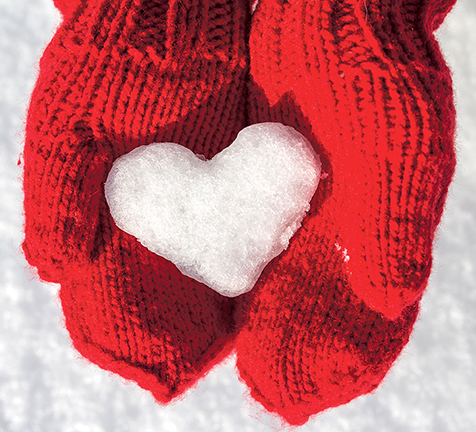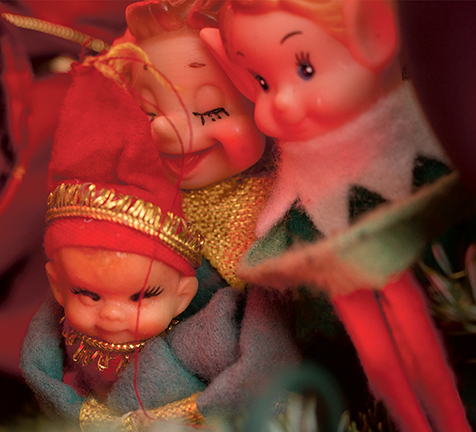
At the End of a Year
At a recent CAMP Rehoboth retreat I asked participants to write one word on a post-it note describing an emotion they felt when contemplating the past year. When posted altogether on a board the results were darker than I expected, creating a sad tapestry of pain, fear, and anxiety. Before moving on to happier topics, we spent a few minutes talking about how we absorb the stress of what’s happening in the world around us, and how much more effort it takes to keep ourselves in a healthy mental state when every day we are assaulted by another barrage of controversy and bad news.
On top of all that societal angst, each one of us carries our own unique set of burdens and heartaches with us every day: we fight cancers and other horrible diseases (and the debilitating treatments that go along with them); we struggle to care for loved ones and friends; we hurt when relationships falter and fail; we agonize over difficult and painful decisions; we spend sleepless nights worrying about jobs, and children, and health insurance, and families; and we despair at our own inadequacy when it comes to dealing with terrorists, mass shooters, superstorms, and fake news.
We could stop right there, say goodbye to 2017 and let it be. But that’s not the end of the story.
Being human has its painful side, to be sure, but it also has love, and hope, and joy. There is no better time than the holiday season to remember that—and no better way to shake ourselves out of our own particular set of problems than to help someone else get through theirs.
Its common knowledge by now, that my husband Steve (and CAMP Rehoboth Executive Director and Editor of this magazine), is going through an aggressive round of chemo this winter to combat his lymphoma. He has cycles of chemo here in Delaware, always followed by a round in the hospital in Philadelphia. On a recent dismal and cold, very early morning in Philadelphia, Steve and I were walking to his oncologist’s office. Steve was running fever and neither one of us had gotten enough sleep the night before. We were both complaining about the weather.
As we hurried heads down along Chestnut Street, out of the corner of my eye I saw a homeless man sleeping on a cardboard box with a flimsy blanket pulled over his head. Most of my attention was on getting Steve in out of the cold, but I looked back just in time to catch a glimpse of the homemade sign scribbled on a piece of cardboard. “Just ignore the homeless man,” it read, “everybody else does.”
Like “everybody else,” I’m quite sure, we had what to us was a very good reason to hurry on by, but that sign remained seared into my head. How many times a day, I wondered, do I pass someone in need and fail to offer help because I’m too busy to see the signs? Granted, they are not usually spelled out so graphically, but I know when I stop thinking about myself, I’m better able to focus on the needs of others.
So much in our world has changed in recent years. Social media alone has altered us in ways we have yet to understand, and along with the technology that made it possible, we have—even as the world opened up to us—become obsessed with our own selfies, our own postings, likes, comments, shares, and tweets. There might perhaps be no more iconic symbol of our age than a selfie where everyone in it has that slightly silly open mouth smile of fake surprise.
Having lived through the devastation of the early years of the AIDS epidemic, we have, like many others, cared for and buried far more friends than we should at this stage of our lives. Now, spending so much time in cancer hospitals, I am still discovering, as I have for years, how that epidemic changed my attitudes about life and death—and helped me grow up and out of myself. It’s tempting when sitting around in waiting rooms to bury ourselves in our mobile devices, but when we pay attention to the individual struggles going on around us, our own problems become less significant.
For more years than I care to remember, Dr Seuss’ How the Grinch Stole Christmas was a part my family’s Christmas Eve tradition. Released in the 1950s not long after I was born, my brothers and sisters and I spent every Christmas Eve gathered around the Christmas tree (in our matching Christmas pajamas) listening as Mother read the story to us in her sweet and gentle southern accent. After our generation grew up, all the nieces and nephews would, as their reading skills improved, take turns reading it aloud. Like the Rocky Horror Picture Show, we developed all kinds of audience responses that became ever more hilarious to us as the years went by.
Tradition and laughter aside, the simple point of that story is that we don’t need fancy decorations, lavish presents, and rich food to celebrate Christmas. All we need is love.
The holiday season is a time when we gather with family and friends to celebrate the good things in our lives, but for many in our community, it can also be a lonely and bittersweet time filled with memories of happier days.
There are many ways to reach out to those in need this holiday season: the Immanuel Homeless Shelter, soup kitchens at Epworth and throughout our community, AA and other support groups at CAMP Rehoboth and other locations, hospitals and nursing homes, Epworth’s Christmas Joy, and the CAMP/Community Toy Drive, to name a few.
All are good causes, but I’ve come to believe more than ever that the real joy and hope of the holiday season comes when we take the time to understand what’s going on in the lives of others and when we reach out to include someone else in our own circle of celebration.
And that’s my Hallmark Christmas card for the year!
All we need is love.
Murray Archibald, CAMP Co-founder and President of the Board of Directors of CAMP Rehoboth, is an artist in Rehoboth Beach. Email Murray.

